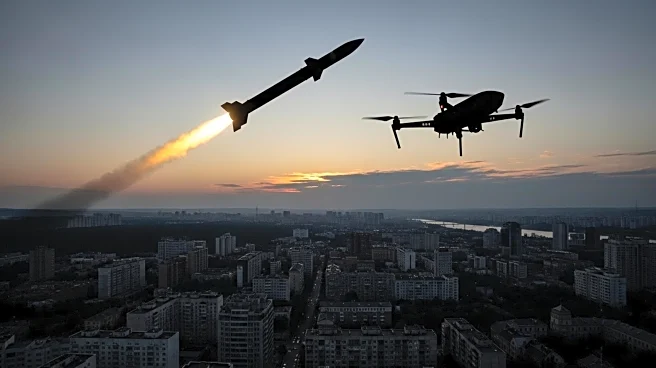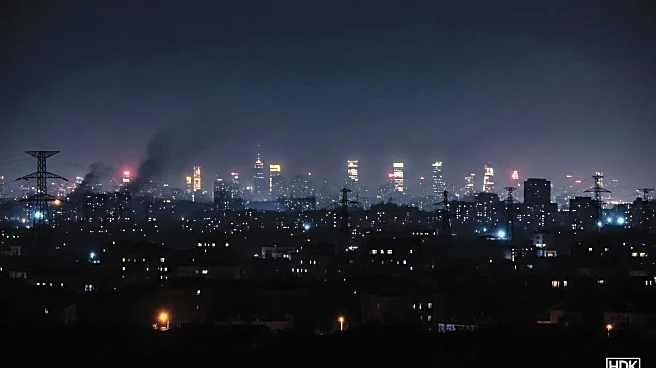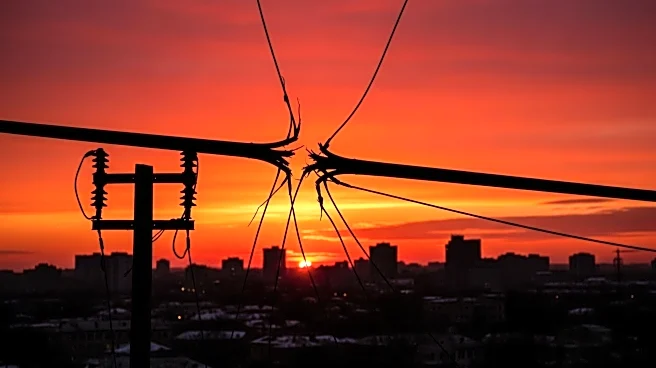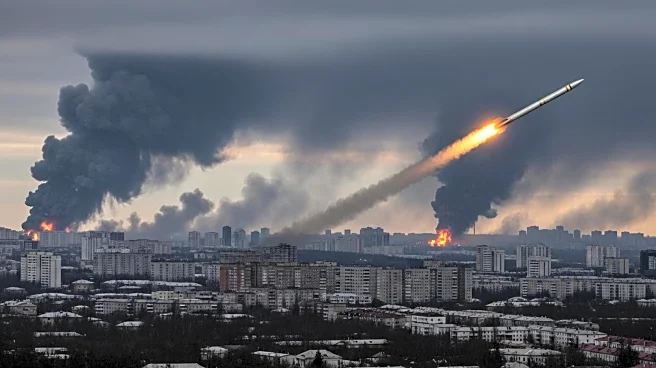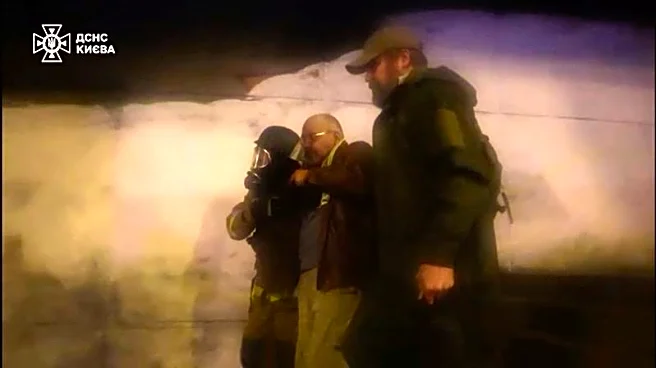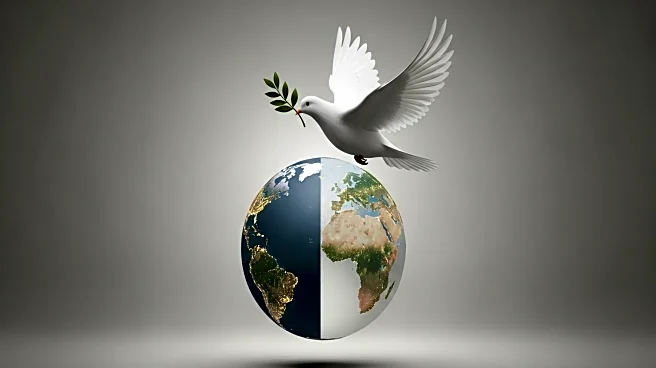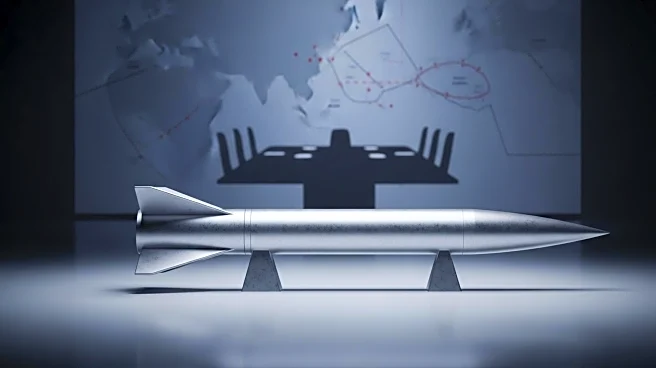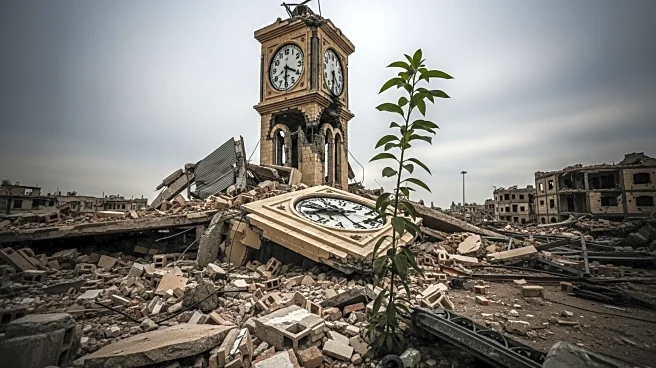What's Happening?
Russia has launched a significant missile and drone attack on Kyiv, targeting the city's power grid and critical infrastructure. The attack has resulted in power outages across various districts, with the left bank of the capital experiencing electricity and water supply issues. Ukrainian President Volodymyr Zelensky has accused Moscow of attempting to create chaos by striking energy facilities and railways. In response, Ukraine has intensified its own drone and missile strikes on Russian territory, which Zelensky claims are yielding results and affecting fuel prices in Russia. The attack has wounded at least nine people, with five hospitalized, according to Kyiv's Mayor Vitali Klitschko.
Why It's Important?
The escalation of attacks on Kyiv's infrastructure highlights the ongoing conflict between Russia and Ukraine, with significant implications for both nations. The targeting of energy facilities and railways is a strategic move by Russia to disrupt daily life and economic activities in Ukraine. This could lead to increased instability in the region, affecting international relations and potentially drawing in further international involvement. The retaliatory strikes by Ukraine indicate a continued cycle of aggression, which may exacerbate tensions and lead to further economic and humanitarian challenges.
What's Next?
The situation remains volatile, with potential for further military engagements between Russia and Ukraine. The international community may increase diplomatic efforts to mediate the conflict and prevent further escalation. Ukraine's continued retaliatory strikes could lead to heightened military responses from Russia, impacting regional security. Energy workers in Ukraine are poised to begin restoration efforts as soon as conditions allow, aiming to mitigate the impact of the attacks on civilian life.
Beyond the Headlines
The attacks on energy infrastructure raise ethical concerns about the targeting of civilian facilities in warfare. The long-term impact on Ukraine's energy security and economic stability could be profound, necessitating international support and investment in rebuilding efforts. The conflict also underscores the geopolitical tensions in Eastern Europe, with potential shifts in alliances and power dynamics.

